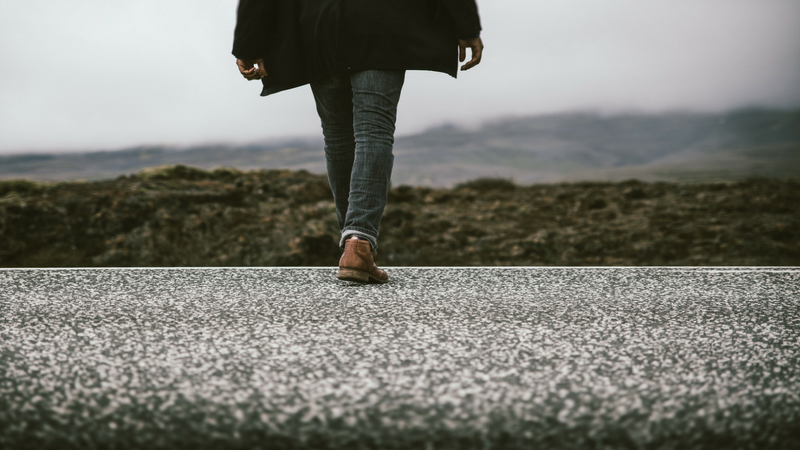Mindful Meanderings
Episode #5 of the course Enhance your creativity by K.C. Finn
There was a time in my life where I was housebound. I could sometimes go 14 days without stepping outside. At the time, I was pretty comfortable with it. Now, I can’t believe I was ever able to be creative without my daily walk!
The Meditation
Some people will already be avid walkers. Rambling and hiking are great sports that many people enjoy. But the goal today is not to get fit or reach the end of a particular trail, and any walking you already do needs to be addressed from a different perspective in order for this technique to work. Adapted from the world of mindfulness training, this meditation focuses on getting out of your head and interacting with the world to be open to new ideas.
Like our lesson on stress, this is an indirect approach to creative projects and is especially useful when you’re stuck at a dead end or looking for a new spark to start a project.
Gearing up for this activity is easy, but you need the right mindset in place to make it work for you. The first crucial thing is not to play music in headphones or look at your phone at all, if you can help it.
The Activity
Walk a route that’s familiar to you and won’t physically tire you out too much. If bad weather makes you grumpy, then start with a fine, mild day—although, some of my most inspiring times have been while walking in the rain. Most importantly, go it alone.
As you walk, be aware of all your senses. Sight is the obvious one, but it can also be misused when we’re used to walking the same route often. We might look at our feet or for a landmark that means we’re a certain portion of the way there, or just use our eyes to observe hazards like oncoming traffic. When you walk mindfully, you open your eyes to every detail. How tall is that tree you just passed compared to the next one? What are the pigeons doing on the roof across the road? What kind of person is the man walking in front of you? What do his clothes and mannerisms tell you?
The other senses are often even less engaged as we walk from place to place. The old adage of “stopping to smell the roses” really works well for this one. Take a deep breath every now and then to see what scents you can pick up. Touch the texture of the wall or the tree bark as you pass by. Listen for the smallest sounds of animals or the conversations other people are having as they rush past you. What’s the temperature like? Is there moisture in the air? Be open to every experience as you take each step.
Reflection
This exercise works in multiple ways to boost creativity. For a start, the practice of mindfulness is very good for improving your mood and alleviating worry. As we learned before, these are both essential for maximum creativity when we work.
The practice of actively noticing things and using the senses also directly lends itself to our creative process. As a sculptor, it might help you consider using different materials. As an artist, you may see new patterns or color schemes you want to work with. As a writer, surrounding atmosphere and sensory detail are often vital to creating an engaging scene for readers.
A practical recap of your walk can often help you process your experiences. It’s not advisable to take notes while you’re doing the walk, as this will spoil your openness to the experience, but reflecting later with a pen and paper can be a useful exercise. What do you remember most from the walk? What was the most pleasurable experience and perhaps the most unpleasant? Jotting down any descriptive words that you might use to recount your experience can be useful, as well as sketching anything interesting that you saw or trying to list the sounds you heard.
Tomorrow, we’ll begin to use this free, open mind of yours to tackle harsh problems that creative types face. It’s time to engage with fear and confidence issues!
Get your boxing gloves ready to fight those fears tomorrow!
K.C.
Recommended reading
Adam Brady does some great stuff on mindful walking and how it increases your concentration. If you still need convincing to give this a try, check it out here.
Recommended book
Creativity: Flow and the Psychology of Discovery and Invention by Mihaly Csikszentmihalyi
Share with friends

